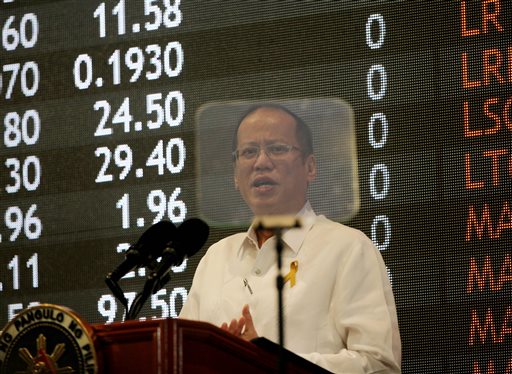President Benigno Aquino III has issued an executive order encouraging the resurgence of automotive manufacturing in the country.
Executive Order no. 182, signed by Aquino last Friday, provides for a “Comprehensive Automotive Resurgence Strategy (Cars) Program.”
The EO paves the way for the implementation of the Cars program, which has been earlier presented to the business sector.
Deputy Presidential Spokesperson Abigail Valte, citing the Department of Trade and Industry, said the program is expected to created 200,000 direct and indirect jobs.
“The projected result is expected to contribute an estimated 1.7% of GDP (gross domestic product),” she said.
Through a package of incentives, it aims to “attract new investments, stimulate demand and effectively implement industry regulations that will revitalize the Philippine automotive industry, and develop the country as a regional automotive manufacturing hub.”
Fiscal support
Only certain vehicle models will be covered by the Cars program. Among the factors to be considered in the “enrollment” of a car model are its track record and competitiveness, new investments, proposed volume or number of units to be produced, economic impact, fuel efficiency and emission level standards, and overall competitive environment.
Car makers qualified to participate in the program should be internationally-recognized or is a local licensed manufacturer working with an internationally-recognized carmaker. They should also have multinational operations and a proven track record.
Meanwhile, fiscal support of up to six years will be provided to registered participants. It will come in two forms: Fixed Investment Support (FIS) and Production Volume Incentive (PVI).
The fiscal support will be in the form of non-transferrable Tax Payment Certificates, which will allow participants to defray tax and duty obligations.
READ: Car program perks tied to actual performance
The Board of Investments will be the lead implementing and coordinating agency. The BOI will establish an application and selection process for the Cars program.
An Automotive Development Fund will also be proposed by the Department of Budget and Management to the National Expenditure Program, which will be deliberated upon by Congress.
The total fiscal support for the program will not exceed P27 billion. Each enrolled model should be qualified for fiscal support not exceeding P9 billion. The amount should be allocated as follows: 40 percent for FIS and 60 percent for PVI. Once the P27 billion is fully utilized, the DBM will propose an annual estimated expenditure.
In addition to fiscal support, which will address the gap in the cost of producing a vehicle in the country as against importing a car, the program will provide non-fiscal assistance through existing laws.
Multiplier effect
As early as 2013, various consultations have been held for the crafting of the Cars program.
READ: Gov’t takes a backseat as carmakers study auto road map
Trade officials hope that interindustry and supply chain linkages will result in a multiplier effect of investments and job creation.
READ: Cars program seen saving PH $16.84B
